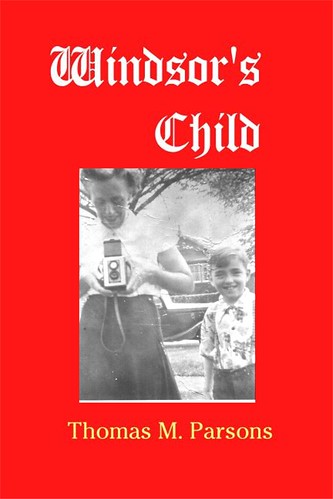
Image : http://www.flickr.com
"Graceful Divorce Solutions" by Marcy Jones fulfills its subtitle's promise to save you "Time, Money, and Your Sanity." As a lawyer, Jones realized the need for people to understand their options when divorcing, and for lawyers to understand the emotional components of a divorce. Jones decided to practice family law so she could look for ways to fix a broken legal system not created for or conducive to dealing with family issues.
Jones thoroughly explains why the legal system should not be involved in most divorce cases, including that law was designed for criminal issues and to settle disputes between people who had done business together but who would not have long-term relationships afterward. By contrast, when two spouses divorce who have children, they remain a family and need to communicate with each other on a regular basis. The legal system's way of turning a husband and wife against each other is not conducive to ongoing communication between the couple after the divorce, and especially not beneficial to the children's welfare.
Jones became a practitioner of family law in hopes to find a better way for families to go through divorce. Following her own divorce, Jones went back to school to become a lawyer. While initially, she didn't know what legal difference she could make, she realized her goals should be two-fold, namely to:
• first, change the way lawyers think about and handle divorces
• second, get honest, reliable information to the clients about their options so they can be actively involved in their own divorce process
When Jones heard about collaborative divorce, she thought she had found her answer. This process allows for a couple to divorce without having to go to court while their lawyers work with them, rather than against one another, to bring about a settlement that both parties find acceptable. When Jones discussed this new process with her legal coworkers, however, she found resistance from them:
When I went to the senior partner at the firm I was in at the time to ask whether I could go to a two-day basic training in collaborative practice, he looked at the information and responded, "This isn't practicing law." In his mind, if you weren't preparing to go to court, you weren't practicing law. If you weren't preparing for court, then you must be afraid to go to court and fight the fight, which is, after all, what lawyers are trained to do!
Precisely because lawyers are taught to fight in court, a procedure that can result in spouses turning against each other and children being caught in the middle, Jones was determined to seek a different approach. Despite opposition from colleagues, she has gone on to practice collaborative divorce successfully with her clients. Jones feels the clincher that makes the collaborative divorce process most effective is that "the couple agreed from the outset not to go to court. When the threat of 'going to court' is taken out of the picture, it changes the whole dynamic."
Jones realizes not all marriages can end peacefully with a collaborative divorce, although many can with cooperation from both spouses. Jones discusses, therefore, the different available divorce processes-litigation, lawyer/lawyer negotiation, mediation, Do It Yourself, and collaborative divorce-so her readers can make an informed decision about which option is right for them. She also goes into detail about the different aspects of divorce, clarifying that a couple really must go through four divorces: legal, financial, social, and emotional.
The difference with collaborative divorce, or any of the processes other than litigation, is that the matter can be settled peacefully outside of court and the couple can follow its own agenda rather than that of family members, lawyers, or a court docket.
With the collaborative process, a collaborative divorce team can be assembled to consist of two lawyers, one or two divorce coaches, a child specialist, and a financial specialist, and still be more cost effective than conventional divorce methods. Such divorces can often be settled within a half dozen or less meetings by the collaborative divorce team, and Jones has personally seen both spouses leave happily and thank both lawyers for their ability to compromise and focus on what will be best for all the family members involved.
Admittedly, lawyers have a bad name, but Marcy Jones has written a book that redeems many of them by showing that lawyers can care about people rather than just fighting with each other and billing their clients for their time. At the end of "Graceful Divorce Solutions," Jones shows her first thought is for the client, even at the risk of lost book sales, because she asks readers to pass the book on to others so they can also learn about and benefit from collaborative divorce.
She hopes she has done her small part to bring about resolution rather than conflict when a marriage must end, and by extension, to help people find peaceful and even satisfying solutions to their problems, not only when divorcing but in any of life's conflicts. Marcy Jones and the Collaborative Divorce process serve as models for what life can be when we seek resolution rather than conflict.
Great review and resource! (Saw it through CuttingEdge.com newsfeed) Just posted this on my Pro-Child Way fb page. Best,
ReplyDeleteEllen Kellner
www.TheProChildWay.com